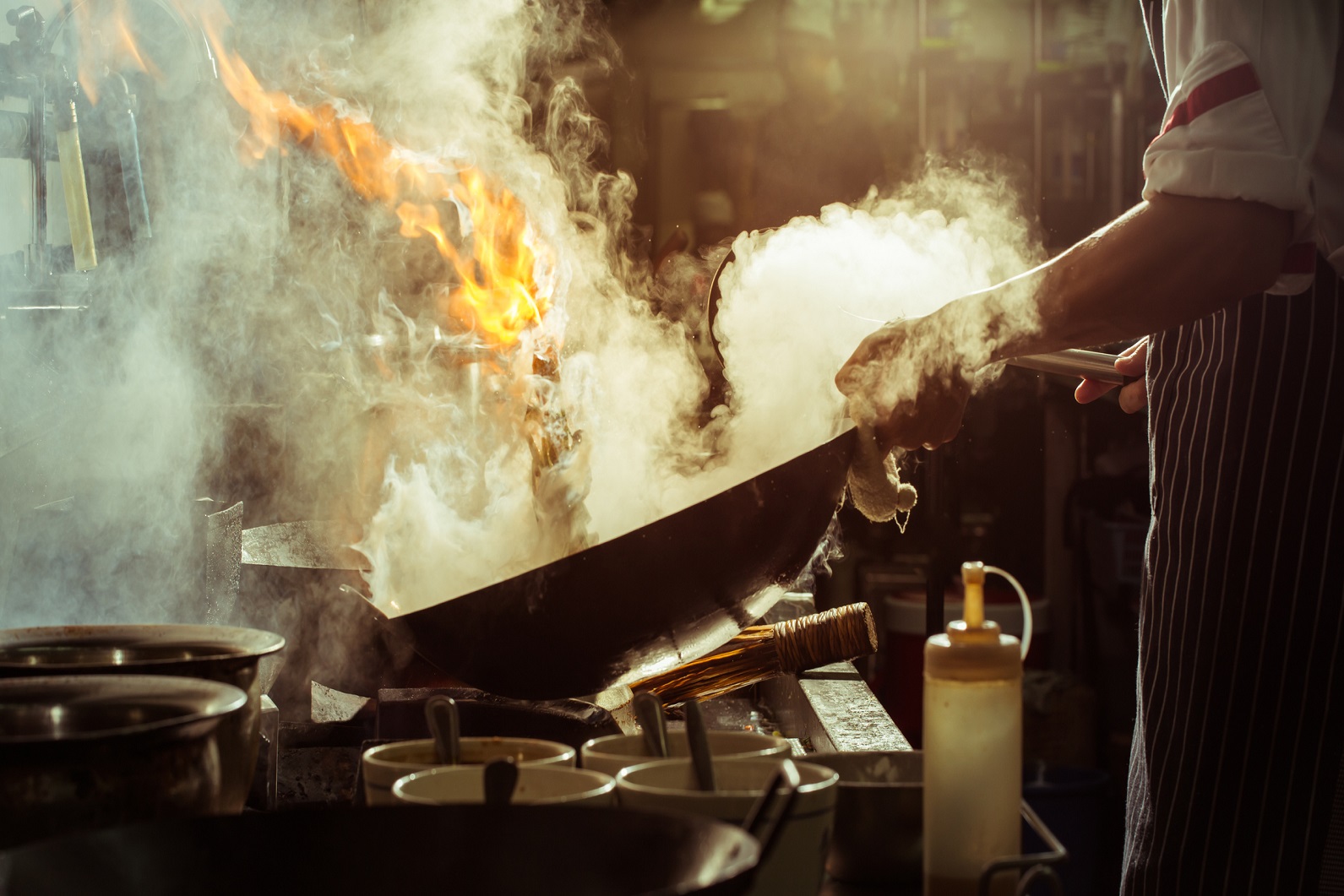Everyone who’s worked in a restaurant kitchen understands the risk of fire. From flames getting out of hand when you’re flambéing a sauce to a grease fire in the deep fryer to an electrical fire caused by a defective mixer, the potential for serious problems is a real issue that restaurant owners need to be aware of. To learn more about what business insurance can do for you and restaurant insurance basics, have Grand Mutual insurance in your corner.
Restaurant Kitchen Fires: The Numbers
Eater reports that according to the National Fire Protection Association, between 2012 and 2016, there were approximately 8,240 fires each year at restaurants. On average, these fires resulted in two fatalities and 115 injuries, as well as $246 million in property damage annually.
As these statistics illustrate, fires happen — and they can be devastating. So since your restaurant depends on the safe and smooth functioning of your kitchen, it’s critical to understand what can cause kitchen fires — as well as how to prevent them.
Causes of Restaurant Kitchen Fires
There are several main causes of restaurant kitchen fires. Cooking oil and packaging materials can catch fire from cooking flames — either from grease or alcohol. Moreover, flames can spread into exhaust systems and ductwork. In addition, grease traps that aren’t properly maintained can also be a fire hazard.
Electrical fires are another significant cause of restaurant kitchen fires. They occur mainly when heat from faulty plugs, sockets, switches or wiring causes flammable materials to catch fire. Moreover, gas leaks — usually from equipment that’s old or not well-maintained — can quickly cause serious fires if an electrical device is turned on or a flame is lit.
How to Prevent Fires in Your Restaurant Kitchen
Preventing fires in your restaurant kitchen is a two-pronged endeavor. To begin with, you need to do everything you can to keep the kitchen a safe working environment. According to the National Restaurant Association, this involves:
- Scheduling regular inspection and maintenance for your exhaust system and ductwork. If you have a busy restaurant, you should schedule quarterly inspections. A less busy establishment can schedule an inspection every six months.
- Making sure your electrical and gas equipment is well-maintained. This includes your electrical system; all electrical equipment such as mixers, refrigerators, and freezers; and gas-fired ovens.
- Installing a fire-suppression system. An automatic fire-suppression system also has a switch so you can deploy it manually. The system shuts down the power supply to the cooking equipment and then dispenses chemicals to extinguish the flames.
- Ensuring there are sufficient portable fire extinguishers. Make sure to get Class K extinguishers for any high-temperature fires such as oil and grease fires. In other places, Class ABC extinguishers will suffice.
At the same time, you should train your people to:
-
-
- Clean up grease from cooking areas, sinks, and exhaust systems.
- Keep the kitchen free of clutter that could catch fire.
- Never try to put out a grease fire with water.
- Remove ashes from charcoal and wood-burning ovens daily.
- Handle and store chemical solutions appropriately — and away from heat sources.
- Use a fire extinguisher properly.
Make Sure You Have Sufficient Restaurant Insurance Coverage
No matter how hard you and your staff work to prevent kitchen fires, the truth is that accidents can still happen. That’s why you need to make sure you have sufficient restaurant insurance coverage. For more information, please contact Grand Mutual Insurance today.
-




